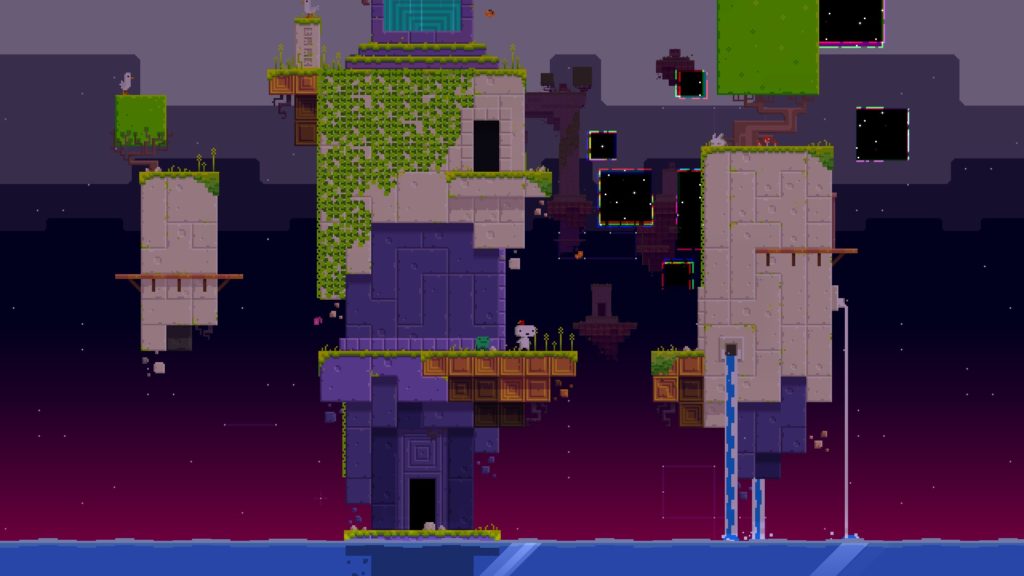Are you surprised by that title? It isn’t obvious that there even is one, but Youtuber 2CPhoenix makes a strong case that there is, that’s (mostly) consistent across the game’s signage! Here’s their video on it (9 1/2 minutes):
These kinds of ciphers aren’t to common in games, but they’re not unheard-of either. The Legend of Zelda: The Wind Waker uses one for the Hylian language, which it even translates for you if you play through the game a second time, and there’s at least one other such language that’s used in Breath of the Wild for Shiekah artifacts. And of course, working out a cipher that’s used in many locations is a major late-game puzzle in Fez.
The “language” of what are possibly the Noki in Sunshine Mario Sunshine is one of those things where, like Bubble Bobble’s Bubble Alphabet, the letters are actually heavily stylized versions of our familiar Latin alphabet, meaning, if you kind of take your brain off the hook slightly and just try to read the glyphs like they were words, you can get a bit of a sense of what they’re saying. Or at least I can. A little.
It’s enough to make one want to take a second look at the fakey-letters in some other Nintendo games, such as the Splatoon and Pokemon series….

